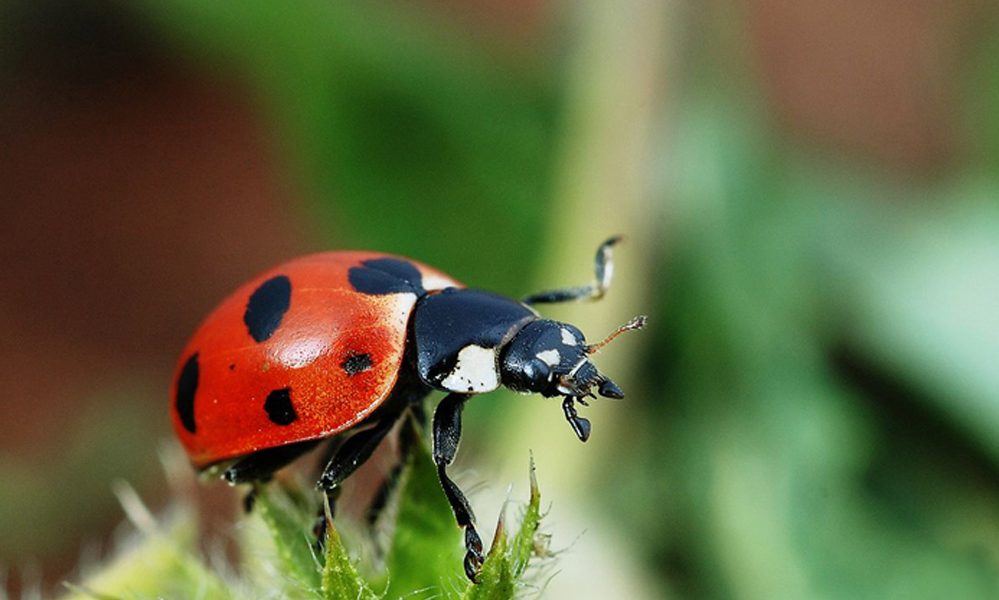
Beneficial Bugs to Protect Your Garden
Have you ever think why certain bugs and insects even exist? Like, what purpose could they serve except to annoy us? Well, considering some other facts some bugs are actually helpful to us.
Learn about four bugs we love and their benefits to the ecosystem.
Honey Bees on Yellow Flower
Bees are an integral part of a healthy ecosystem, helping to pollinate flowers and garden vegetables. They help for the growth of trees, flowers, and other plants, which serve as food and shelter for creatures large and small. Without honey bees and other pollinating insects, the world would lose about one-third of its food supply. Studies have shown that one in three bites of food is, directly or indirectly, pollinated by honey bees.
If that’s not enough, honey bees are the only producers of honey – a sweet treat we certainly enjoy that offers numerous health benefits.
Honey bees are disappearing due to things like pesticides used in farming, a lack of natural food sources, and other hardships.
Ladybugs
Lady beetles are one of the harmless types of bugs and they are also beneficial for us and help to protect our crops and agriculture by eating crop-damaging aphids, mealybugs and other harmful insects. Simply they are the biggest benefit to our ecosystem, Ladybugs eat aphids! You know, those tiny sap-sucking bugs that cause extensive damage to gardens and crops. It isn’t uncommon for farmers and gardeners to purchase ladybugs to protect their plants, flowers, and fields. Ladybugs will eat most agriculture-destroying aphids and mites. Ladybugs can become a problem for humans and will infest homes, swarming in the thousands.
Vacuuming these beetles and discarding the bag may be the most effective method of removing these insects from your home. Remember, we don’t want to remove them from fields, orchards or gardens since they are so beneficial.
Praying Mantises
The Praying mantis is a well known beneficial insect to have around the garden and farm. Praying mantises are also bought for gardens and fields and they are considered as fierce predators of many destructive bugs. Baby mantises eat aphids, leafhoppers, mosquitoes, and other soft-bodied insects. But, as babies, mantises are easy prey themselves. As they grow into adults, they will eat larger insects like beetles, grasshoppers, moths, caterpillars, and sometimes even wasps. Praying mantises look scary to some people. But they are non-aggressive carnivorous insects and will not attack unless provoked. Even then, if they bite you, you’ll feel only a pinch. They are not the least bit dangerous.
Dragonflies
Dragonflies are one of the favourite insects of everyone. Why? Because the main diet of dragonflies is annoying, blood-sucking mosquitoes. In truth, only the female mosquitoes bite. After feeding, they mate with a male and lay up to 300 eggs at a time. That’s why you’ll often find Dragonflies feeding around ponds, lakes, or other water sources where mosquitoes lay their eggs. Dragonflies are not aggressive. If you approach, they will usually fly away. Even with a net, these insects are hard to catch. But if one lands on or near you, be kind. They will not hurt you.
Some Bugs are the Bee’s Knees!
You will probably encounter honey bees, ladybugs, praying mantises, or dragonflies at some point in the future. And now you’ll have a new respect for their beneficial purpose in our world.
- Honey bees contribute significantly to our food supply through pollination.
- Ladybugs eat the tiny mites that damage our gardens and crops.
- Praying mantises eat the bigger bugs that destroy our agriculture.
- Dragonflies eat mosquitoes. Enough said!
Some of the ‘bad bugs’ we prefer to avoid are beneficial to humans and our planet too, each in their own ways.
Pest control is not about the total extermination of annoying or even dangerous pests. It’s about management, prevention, and elimination. Stinging insects, rodents, spiders, and other creepy crawlies do need to be managed. We don’t want them to grow in numbers to where they become a big problem for humans and our health, homes, and food supply.
Call us or send us a message online to schedule a free comprehensive pest inspection.